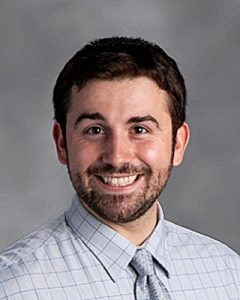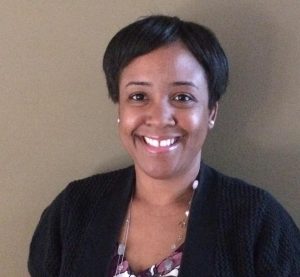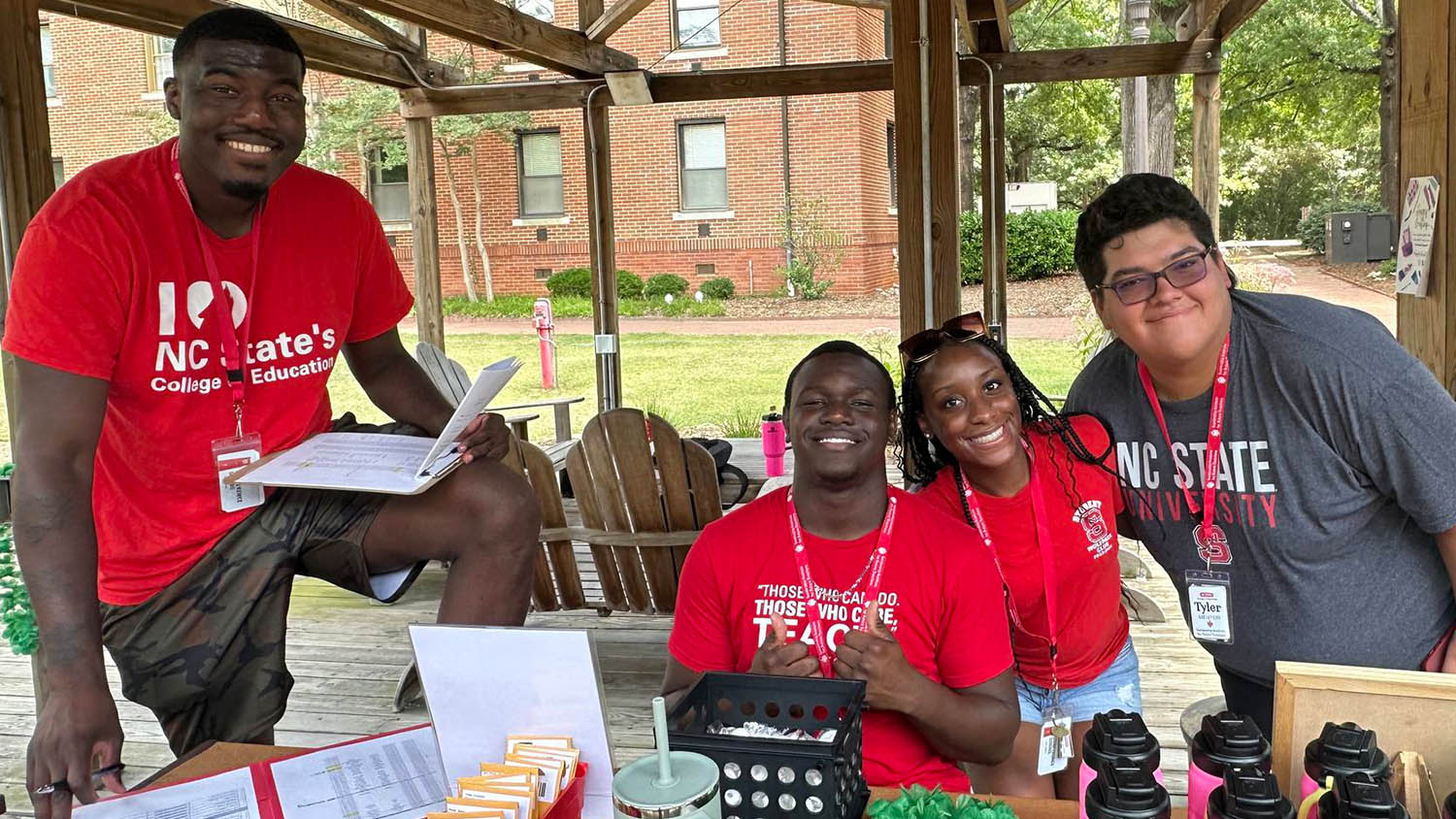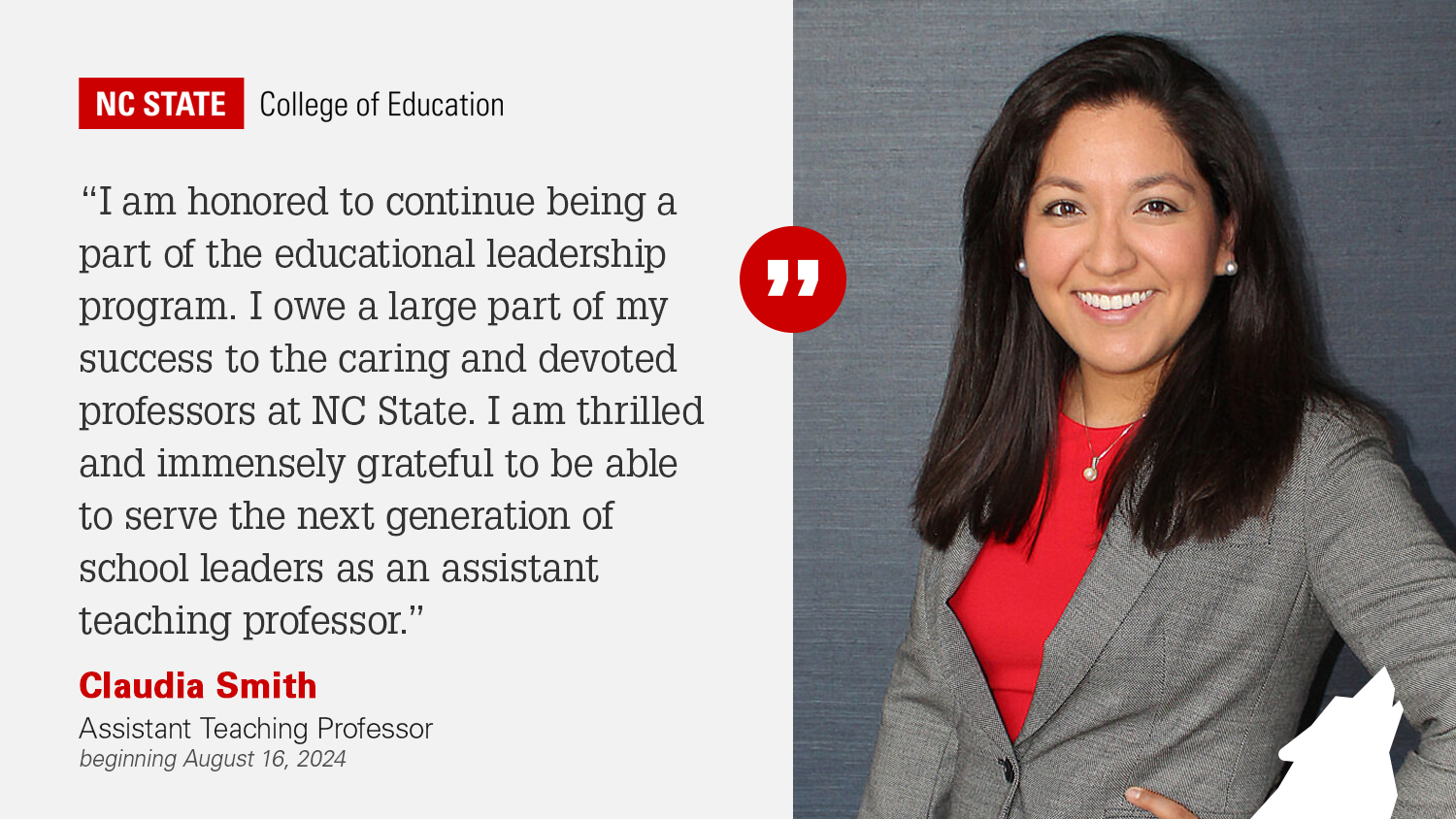Representing North Carolina Teachers on “Education Matters”

The College of Education was well represented when Education Matters, a new television show that focuses on the state of public education in North Carolina, debuted earlier this month. Dean Mary Ann Danowitz was the opening guest along with the dean of UNC Wilmington’s College of Education, Van Dempsey. Following the deans’ discussion of North Carolina universities’ role in preparing our state’s future teachers, two products of the North Carolina teacher pipeline were interviewed–Trey Ferguson and Shemika Banuelos, both College of Education graduates. Ferguson, who received his bachelor’s degree from the College in 2014, is a math teacher at Leesville Road High School in Wake County and Banuelos, who received her master’s degree from the College in 2015, is a 1st grade teacher at Wilson’s Mills Elementary School in Johnston County.
So, how do current teachers feel about the state of the teacher pipeline in our state? What was it like to be selected as a spokesperson for all teachers? Find out below.
You were recently a guest on the Public School Forum of North Carolina’s new TV show, Education Matters. How did it feel to be a spokesperson for your fellow teachers?
Trey Ferguson (TF): Aside from the pressure of making sure my colleagues’ stories were being told, it was an incredible opportunity to be able to bring to light the conversations we as teachers are having every day between classes. This year especially, our electorate needs to hear these stories, and I was just happy to share.

Shemika Banuelos (SB): I felt extremely privileged to represent my fellow NC teachers. Teaching is such an extremely important and complex profession. We don’t always get a chance to share our opinions on such a big platform, so I felt honored to have that opportunity. I don’t think any one person can fully represent all educators’ viewpoints, but I was excited to share my perspective. I look forward to watching other teachers share their ideas on future episodes.
On the show, you discussed the teacher pipeline in North Carolina. How could the pipeline be improved to better prepare and support NC teachers?
TF: The pipeline has three issues: preparation, recruitment and retention. In North Carolina, our schools of education need to focus on increased cultural-competent pedagogy; that is, the ways to reach students from various socioeconomic and racial divides. For recruitment and retention, our state needs to address teacher compensation and the general respect for teachers’ time in legislating policies impacting our classrooms. This includes a teacher scholarship program targeting the best and brightest of our high school graduates.
SB: One of the main ways to improve the teacher pipeline is to make our salaries competitive. Not just making them comparable to teacher pay in other states, but comparable to other professions. Teachers put a lot of time and effort into being effective in the classroom and we deserve to be adequately compensated. Unfortunately, I have seen fantastic teachers move to other states or change professions completely because they simply cannot survive on the NC teaching salary.
Something else we can do to improve the teacher pipeline is to offer support to teachers at all levels of the profession. Many counties have worked to improve their new teacher support programs, which is vital. However, it is also important to remember veteran teachers need support as well. Especially when they are changing departments or grade levels. Every teacher should have access to PD opportunities that are differentiated and ongoing. Moreover, I believe all teachers would benefit from knowledgeable constructive feedback from a non-evaluative source.
I also think it would be nice to find more ways to recognize teachers’ accomplishments. A sincere thank you can go a long way for many educators. In a world that recognizes the importance of teachers working in collaboration, it seems odd to me that we still place so much emphasis on individual teacher awards. We should develop ways to acknowledge professional learning communities and other teacher teams on a larger scale.
How did the College of Education prepare you for a career as an educator?
TF: NC State’s College of Education and the Teaching Fellows Program placed a significant emphasis on classroom visits and teacher observations early on in my college career. This forced me to be cognizant of a variety of teaching strategies and provide a frame of reference for classroom-based lectures. In particular, an assessment lab course taught by Dr. Feldman kept me reflective on my own implicit biases affecting student assessment and the role of it in the classroom learning environment. The various ways to get involved within the College of Education nurtured my passion for professional advocacy.
SB: I decided to get my master’s degree a few years after earning my National Boards. I was looking for another opportunity to improve my practice. I think I am a better teacher when I’m also investing time as a learner. Attending the College of Education pushed me to analyze my practice and become more thoughtful in my instruction.
What motivates you to teach?

TF: My students. Seeing students surprised at their own capabilities and helping them learn not only math, but about their own character makes my heart sing. The kids motivate me to be there every day.
SB: I teach because I know from personal experience that a quality education can change a person’s life and that of their future family’s. I want my students to understand the joy and importance of being a life long learner. In addition, I want them to understand that despite some of their current situations, with enough grit, their futures can be bright.
What advice do you have for aspiring educators?
TF: You can only plan so far in advance, so focus on the important stuff and prioritize, be flexible, make time for yourself (whatever that may be), and most importantly…you are there for the kids, never forget that.
SB: My advice for aspiring teachers is to never stop learning, asking questions and reflecting on your practice. It is also important to keep yourself informed about the policies and issues impacting teachers in NC. I have been a member of the NCAE since I began teaching and it has been a wonderful way to ensure that my voice is heard on issues facing NC educators. In addition, they have excellent National Board support and professional development opportunities.
Click here to watch Dean Danowitz, Ferguson and Banuelos discuss the North Carolina teacher pipeline in the first episode of Education Matters.
- Categories:


